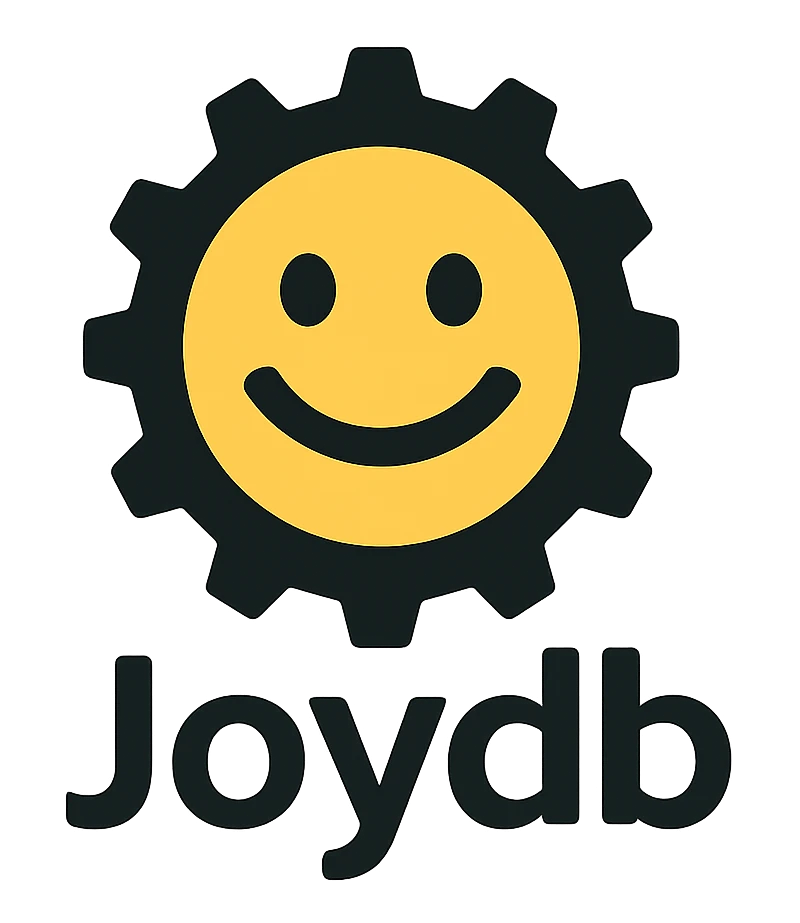Expand description

JSON/CSV file database and ORM for quick prototyping.
Joydb is a Rust library that acts like a database and ORM at the same time and provides a simple way to store and retrieve data in JSON, CSV or any other format.
§Getting started
Install prerequisites:
cargo install serde --features derive
cargo install joydb --features json
use joydb::{Joydb, adapters::JsonAdapter, Model};
use serde::{Serialize, Deserialize};
// Define your model
#[derive(Debug, Clone, Serialize, Deserialize, Model)]
struct User {
// id is mandatory field for every model.
// We use integer here, but most likely you will want to use Uuid.
id: u32,
username: String,
}
// Define the state
joydb::state! {
AppState,
models: [User],
}
// Define the database (combination of state and adapter)
type Db = Joydb<AppState, JsonAdapter>;
// Create a new database or open an existing one
let db = Db::open("data.json").unwrap();
let alice = User {
id: 1,
username: "Alice".to_string(),
};
// Insert a new user
db.insert(&alice).unwrap();
// Get the user by ID
let user = db.get::<User>(&1).unwrap().unwrap();
assert_eq!(user.username, "Alice");
§CRUD operations
| Operation | Methods |
|---|---|
| Create | insert, upsert |
| Read | get, get_all, get_all_by, count |
| Update | update, upsert |
| Delete | delete, delete_all_by |
Please refer to Joydb for more details.
§Adapters
There are 2 types of adapters:
- Unified - uses a single file to store the state. It writes and reads the entire state at once. Usually requires a file path.
- Partitioned - uses multiple files to store the state. It writes and reads each relation separately. Usually requires directory path.
The following adapters are implemented out of the box and can be used with the corresponding feature flag enabled.
| Adapter | Format | Type | Feature flag |
|---|---|---|---|
| JsonAdapter | JSON | Unified | json |
| JsonPartitionedAdapter | JSON | Partitioned | json |
| RonAdapter | RON | Unified | ron |
| RonPartitionedAdapter | RON | Partitioned | ron |
| CsvAdapter | CSV | Paritioned | csv |
§Sync policy
Sync policy defines when exactly the data must be written to the file system.
Please see SyncPolicy for more details.
§Motivation
While prototyping new projects, I often needed some form of persistent storage. However, setting up a full-fledged database and ORM felt like overkill for the project’s scope. So I’d occasionally fall back to a simple JSON file. As this pattern repeated, I decided to solve the problem once and for all by building Joydb.
§Limitation
Joydb is designed in the way that it writes the entire database state to a file system at once. This means that it is not suitable for high performance applications or for domains where the data is too large to fit in memory.
It’s highly recommended to switch to a proper database like PostgreSQL before Joydb turns into Paindb.
§License
MIT © Serhii Potapov
Modules§
- adapters
- Common place for adapter abstractions and a few implementations.
Macros§
- state
- A macro to define a state struct that holds relations of models.
Structs§
- Joydb
- A struct that represents a database. It’s thread-safe and can be shared between multiple threads.
- Joydb
Config - Relation
- A relation is a collection of records of a particular model and some metadata. associated with the relation.
Enums§
- Joydb
Error - Joydb error type.
- Joydb
Mode - The mode of the database. This is used to specify how the database should be opened.
- Sync
Policy - Specifies how and when the database should be synchronized with the file system.
Traits§
- GetRelation
- A utility trait that implemented by a state that can store a relation of a model.
- Model
- An identifiable model that can be stored in a database.
- State
- A trait that represents a state that can be (de)serialized to/from JSON or any other format supported by an adapter.